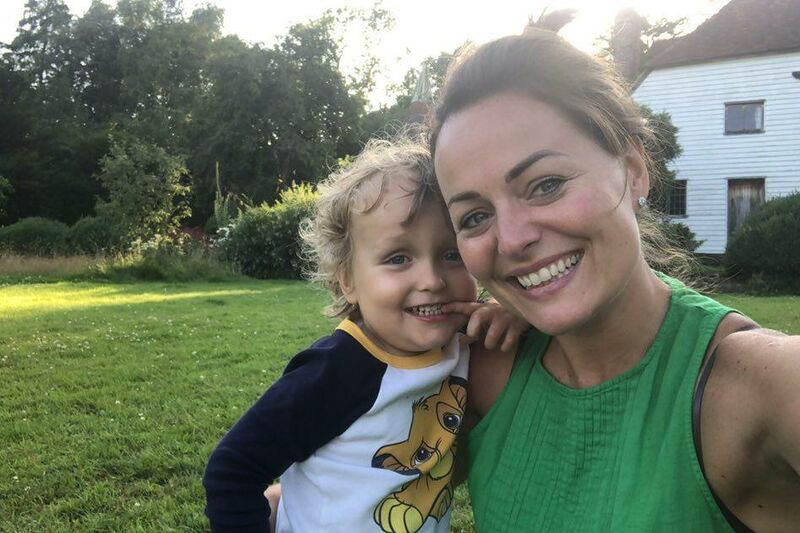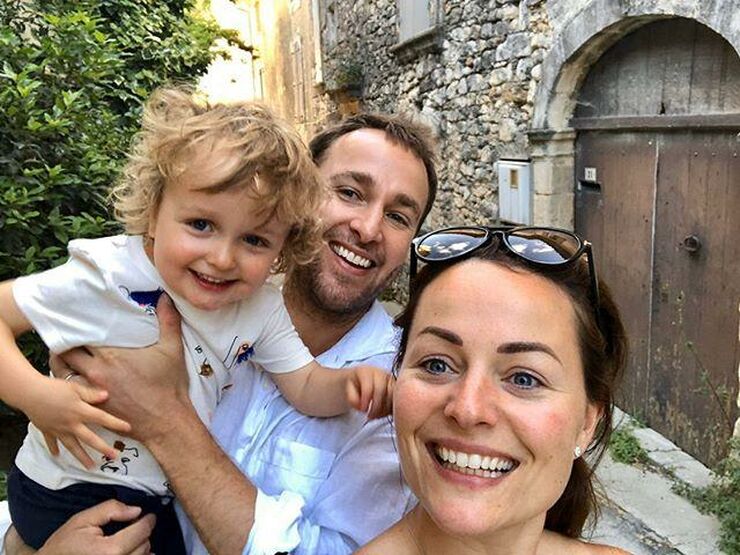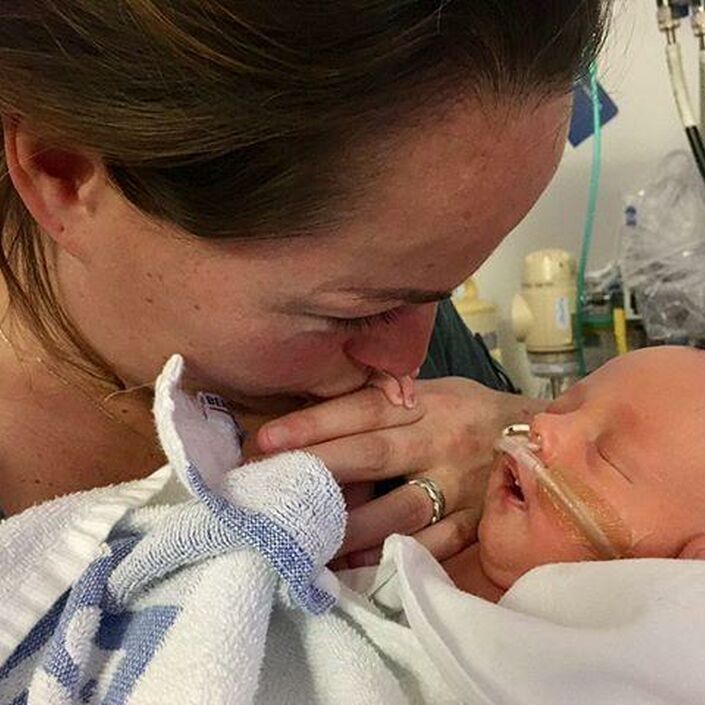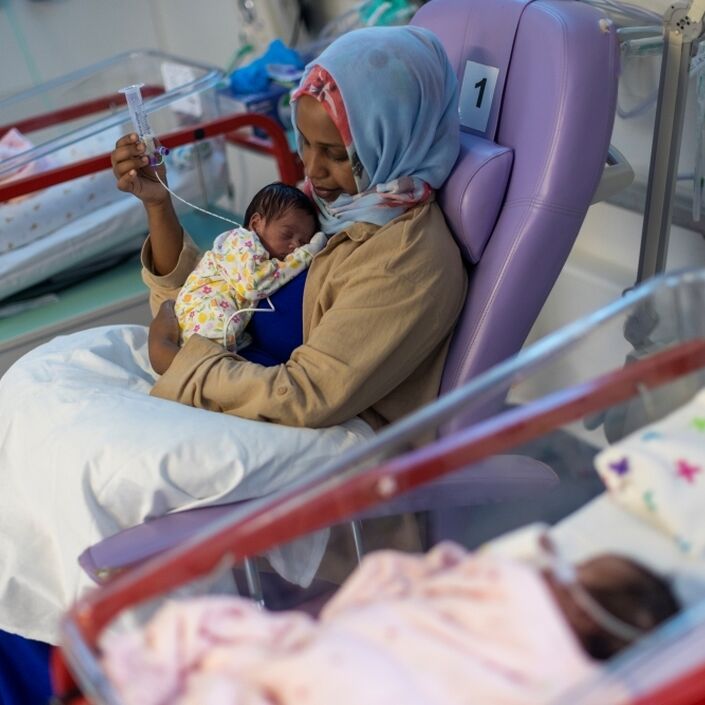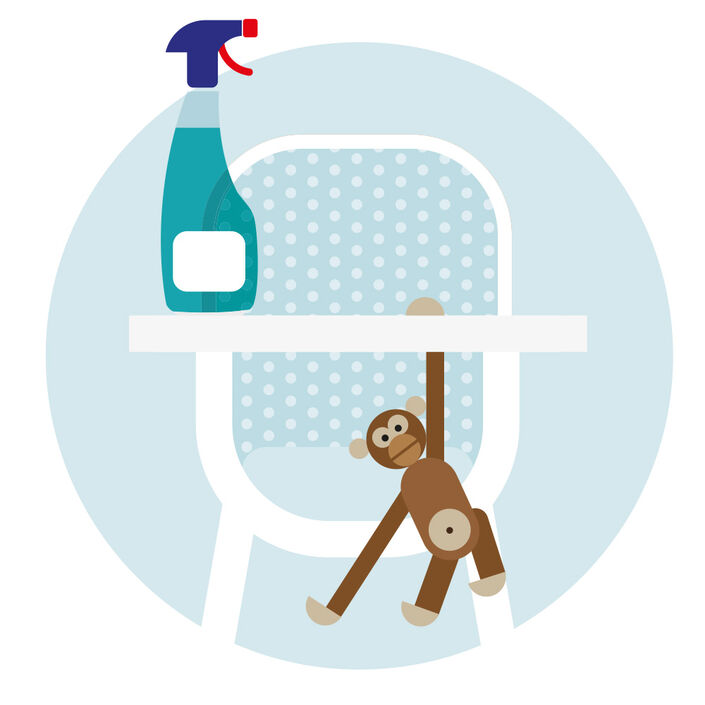Our lives became punctuated with the beeping of dozens of monitors on the 25 babies in the ward. I heard those monitors for months after we had been discharged. I’d wake in terror, dreaming of them crashing, as we heard so many times during our stay. Our hearts swelled and emptied on the latest oxygen saturation reading, the results of the latest heel prick test, the weigh-in, how enriched the air needed to be for his heart to not exhaust itself with effort. Time on that oxygen machine was like living through static on the radio. The oxygen dial was reset by feel several times a day as we all searched in the dark for a clearer song.
Unbundled from the blankets he’d been first handed to me in, naked but for a tiny nappy, he looked thinner, bluer and more frail than I remembered. We couldn’t really see his face for masks and tubes and hats. He was unrecognisable, in fact. He was moved to the room with one on one care.
The staff were amazing. They explained every tube, every test. They taught us how to change his nappy and make him comfortable. We started syringing fluids down his nose and into his tummy. He was allowed out briefly for his first bath. Soon, we became old hands.
Without looking at the other babies, we began to identify from the bleeps which ones were most poorly. The baby opposite us needed daily blood transfusions. In two weeks that little baby was never once visited. It broke my heart. Maybe they’d given up hope. Maybe they had sick siblings at home to look after. Who knows. Who could blame them? I tried to pray for her and in those prayers I thanked every person who had donated blood. They were the difference that kept her Mondays turning into Tuesdays. Privately, and with shame, I rejoiced that my baby was stronger.
Even though my son would have to receive nourishment through a tube, I was encouraged to express milk for him. Anything I could manage would help, I was told. He was losing weight rapidly. I hated myself for nothing coming out. I tried so hard. I would attach myself to a pump for forty minutes on the highest setting every three hours in the hope that something, anything, would come. I’d rinse the tubes of my own blood and sterilise them in silence before putting the equipment back together for the next mother. It wasn’t until much later that I learned that it is very common for mothers whose children come early to not lactate.
As soon as I could walk I was discharged. We suddenly had a new problem. Where would we stay? I had to be on hand every two or three hours at the hospital. We had no idea how long this would go on for. Days? Weeks? Longer still?
Friends and relatives wanted to know answers that we couldn't give. We weren’t living in twenty-four hour periods anymore. It was impossible to explain to anyone who wasn’t in it.
Some babies were celebrating their hundredth day on the ward. Bitter-sweet anniversaries were marked with cards and bunting festooning the foot of incubators. The staff got us a place at the Ronald McDonald House. We had a free bedroom, a bathroom, a communal kitchen and TV room but the most important thing it gave us was a community. All the other residents were also out-of-town parents of children who had to stay indefinitely in the hospital.
